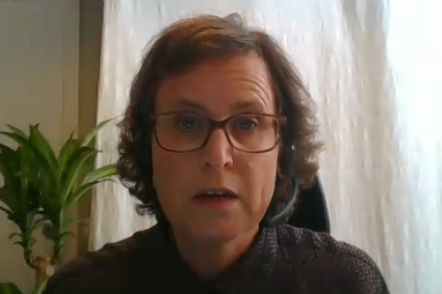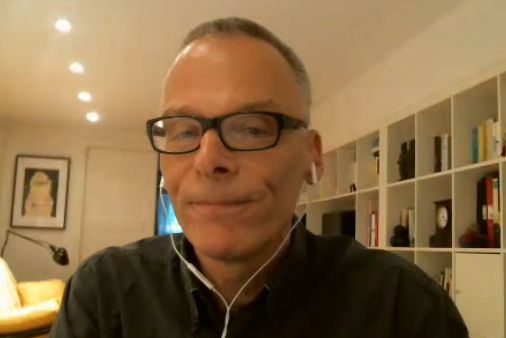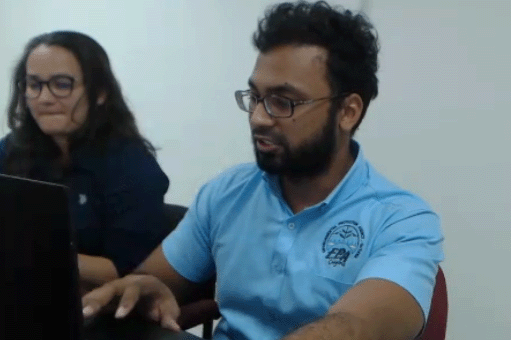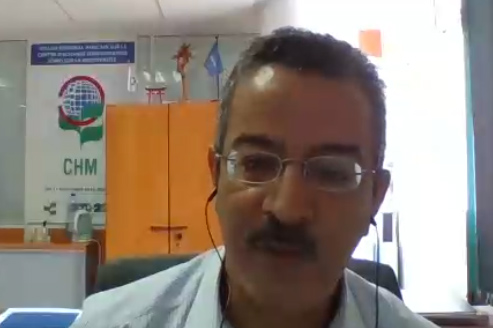Convention on Biological Diversity: Special Virtual Sessions
15-18 September 2020 | Virtual
Highlights for Thursday, 17 September 2020

The Convention on Biological Diversity (CBD) Special Virtual Sessions reconvened on Thursday, 17 September, from 7:00-9:00 am EDT (UTC-4:00). These virtual sessions of the CBD’s Subsidiary Body on Scientific, Technical and Technological Advice (SBSTTA) and Subsidiary Body on Implementation (SBI) provide the opportunity for the presentation of information and for statements by parties and observers.
Testing of A Party-Led Review Process Through an Open-Ended Forum
Parties continued to test a party-led review of implementation of the Convention and the Strategic Plan for Biodiversity 2011-2020.
Reviewing its implementation efforts, Finland noted that the most pronounced improvements in biodiversity conservation were in low-ambition actions. Moreover, there were promising trends in partially implemented actions. He said that future actions need to be fewer in number, have concrete outcomes, and should be accompanied by clear implementation indicators. He highlighted Finland’s involvement across biodiversity multilateral environmental agreements (MEAs), as well as chemical conventions, and stressed the need for consultations with all involved stakeholders.
Confessing a “mixed level” of progress, Guyana reflected on its National Biodiversity Strategy and Action Plan, including promoting conservation and the sustainable use of biodiversity through, among others, a national land use policy, access and benefit-sharing regulations, and improving biodiversity monitoring nationally in key sectors. He noted that, while resources were made available, strategies were implemented unevenly, with certain areas receiving more focus. He highlighted challenges involving limited funding, lack of capacity, inconsistent methodologies, and lack of awareness of biodiversity needs at the political level.
Strategy for Resource Mobilization
Parties heard a report from the Expert Panel on Resource Mobilization, whose work is intended to inform the Open-Ended Working Group on the post-2020 global biodiversity framework. Panel members Jeremy Eppel, Yasha Feferholtz, and Tracey Cumming presented.
On the review of experiences and evaluation of the strategy for resource mobilization, the panel found that, while the underlying structure of the strategy is still sound, it is challenged by the presence of subsidies that are harmful to biodiversity, a lack of mainstreaming, a failure to address the private sector and other financial mechanisms, and a lack of priority for biodiversity outside environment ministries. The panel recommended that the strategy focus on redirecting and reducing the harmful use of resources, enhance synergies with climate change and Sustainable Development Goals finance, and comprehensively integrate biodiversity in business and finance sectors.
The panel found that funding needs remain high. It reported that an ambitious global biodiversity framework could benefit the global economy by USD 500 billion per year, while there would be significant costs to not investing in biodiversity conservation. Noting that the financial cost of such investments would amount to less than 1% of global gross domestic product (GDP), the panel recommended allocating more resources to protected areas, especially in low-income countries, which have the highest potential to benefit from such investments.
Considering resource mobilization in the post-2020 biodiversity framework, the panel concluded that change must involve reducing or redirecting resources that harm biodiversity. The panel also recommended enhancing the effectiveness and efficiency of resources through, among others, good governance, vertical and horizontal coordination among governments, and more realistic timeframes.
In the subsequent discussion, parties considered, among others:
- the need to consider the economic burdens of the global recovery from the COVID-19 pandemic;
- the need to make financial flows consistent with net positive developments for biodiversity; and
- the possibility of a dedicated global biodiversity fund, as discussed during the second meeting of the Open-Ended Working Group on the post-2020 global biodiversity framework.
IISD, through its Earth Negotiations Bulletin (ENB) Meeting Coverage, is providing daily web coverage and a briefing note from the special virtual sessions.
Images from the Meeting
Convention on Biological Diversity (CBD) Resources
- CBD Website
- Special Virtual Sessions Website
- Website for the CBD Working Group on Post-2020
- SBSTTA-24 Website
- SBI-3 Website
IISD/ENB Meeting Coverage
- 2nd Meeting of the Open-ended Working Group on the Post-2020 Global Biodiversity Framework, 24-29 February 2020, Headquarters of the Food and Agriculture Organization of the UN (FAO), Rome, Italy
- 23rd Meeting of the Subsidiary Body on Scientific, Technical, and Technological Advice (SBSTTA 23) and 11th Meeting of the Ad Hoc Open-ended Working Group on Article 8(j) and Related Provisions (WG8J 11) of the CBD, 20-22 and 25-29 November 2019, Montreal, Canada
- 1st Meeting of the Open-ended Working Group on the Post-2020 Global Biodiversity Framework, 27-30 August 2019, UN Office, Nairobi, Kenya
- 2018 UN Biodiversity Conference, 14-29 November 2018, Sharm El-Sheikh, Egypt
- ENB Coverage of Biodiversity Meetings
IISD Resources
- Subscription Page for IISD Reporting Services Peer-to-Peer Mailing Lists (including BIODIVERSITY-L,SDG, CLIMATE-L, FORESTS-L, OCEANS-L, and Regional Updates)
- SDG Knowledge Hub - An Online Resource Center for News and Commentary Regarding the Implementation of the United Nations’ 2030 Agenda for Sustainable Development, including all 17 Sustainable Development Goals (SDGs)
- Linkages Update - International Environment and Sustainable Development News








